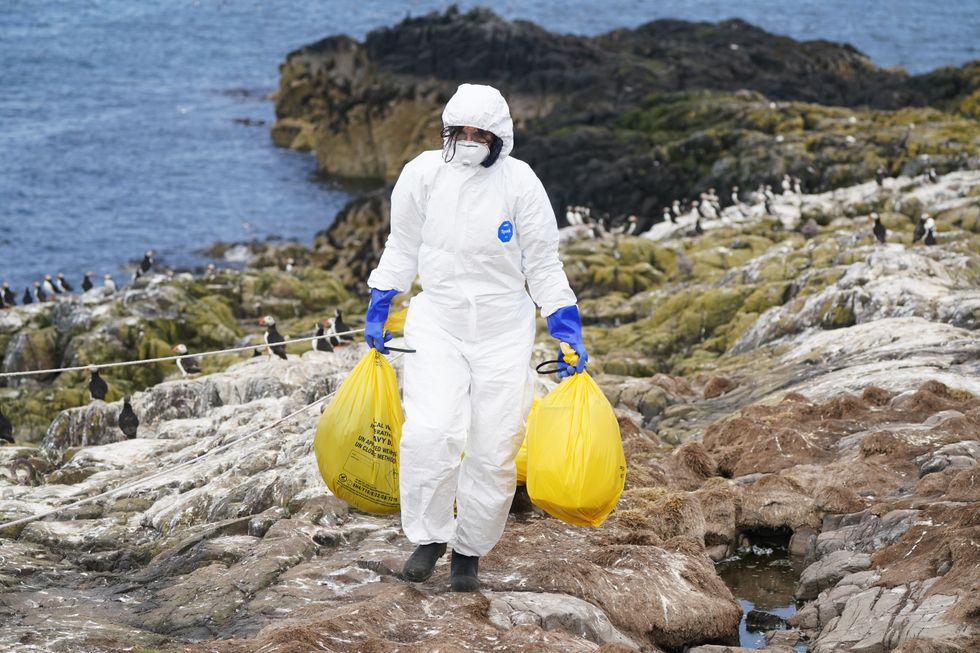World Health Organization says 'we must prepare' for next pandemic and is already preparing new vaccine

Experts suggest wearing a face covering if contact is unavoidable
Don't Miss
Most Read
The spread of bird flu needs to be monitored, the World Health Organzation has warned.
Whilst the risk to humans remains low, the WHO believes “we must prepare” for that possibility.
H5N1 – commonly known as bird flu - has spread among poultry and wild birds for 25 years, Director-General Tedros Adhanom Ghebreyesus told reporters in a virtual briefing, but the recent reports of infections in mink, otters and sealions "need to be monitored closely".
WHO Director-General Tedros Adhanom Ghebreyesus
Denis Balibouse
He said the risk to humans remained low, noting that human cases have been rare since the flu strain emerged in 1996.
"We cannot assume that will remain the case and we must prepare for any change in the status quo," Tedros said.
He said people were advised not to touch dead or sick wild animals and to instead report them to local and national authorities, who were monitoring the situation.
The WHO also recommended strengthening surveillance in settings where humans and animals interact.
"WHO is also continuing to engage with manufacturers to make sure that, if needed, supplies of vaccines and antivirals would be available for global use," he said.
In January, Ecuador confirmed their first human case of the virus in a 9-year-old girl, one month after the country declared an animal health emergency.
The UK is still “a long way” from being in a situation where bird flu could infect humans and spread in a similar way to Covid-19, an expert from the Animal and Plant Health Agency (Apha) has said.
Bird flu is an infectious type of influenza that spreads among birds. In rare cases, it can affect humans.
There are lots of different strains of bird flu virus, and most of them do not infect humans.
Both Slovakia and Nepal have reported an outbreak of bird flu this week, with more than 7,500 flock being slaughtered.
A record number of chickens, turkeys and other birds have died in outbreaks of the highly contagious disease in Europe in the past year and the virus is spreading in the United States, South America, Africa, and Asia.
Owen Humphreys
Experts and officials say the risk to humans remains low.
Dr Alastair Ward, associate professor of biodiversity and ecosystem management, at the University of Leeds, says that while the developments do not increase the risk of the virus spilling over into humans, this is not 100% certain.
He explained: “Humans rarely come into contact with wild foxes or otters, and potentially infectious contact is likely to be rarer still.
“In the past, a relatively small number of humans who have lived or worked very closely with affected poultry e.g. in slaughter houses, have become infected with highly pathogenic avian influenza, with variable outcomes.”
While there is no transmission within mammalian populations, the risk to humans remains low.
Experts say sensible precautions can be taken like avoiding contact with wild mammals and birds, wearing protective gloves and a face covering if contact is unavoidable, and washing hands and soiled clothing with soap and water after exposure to affected environments.











